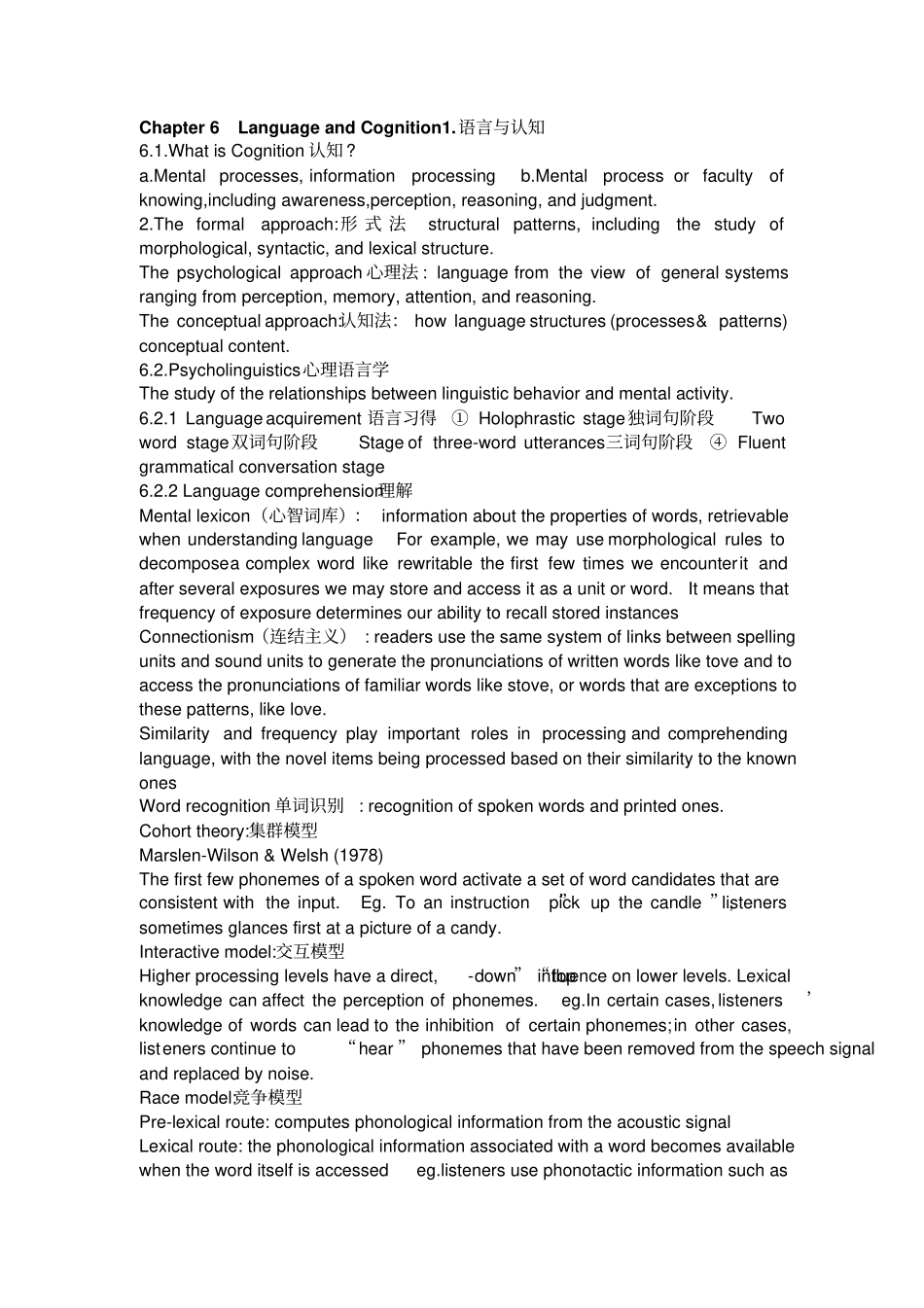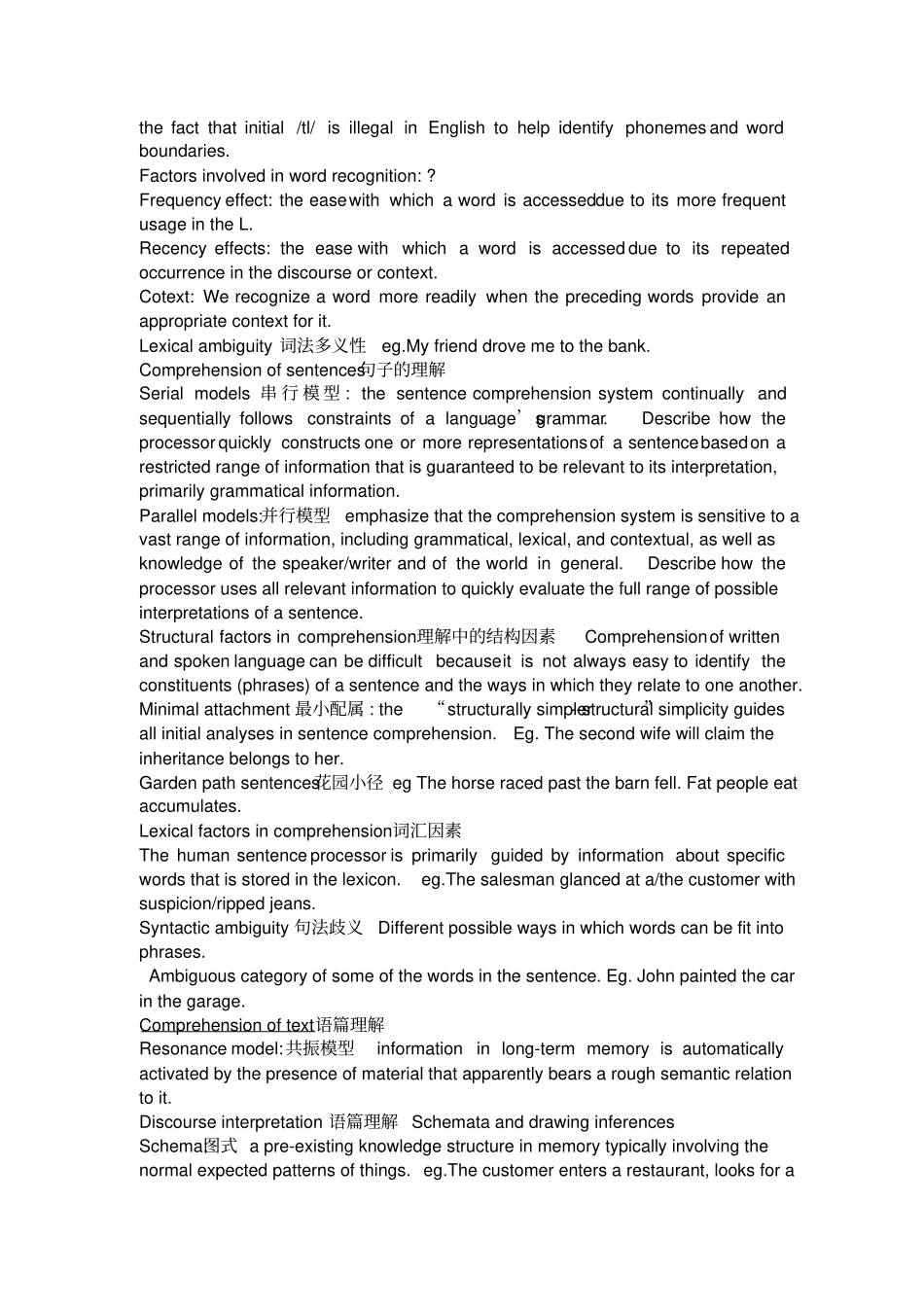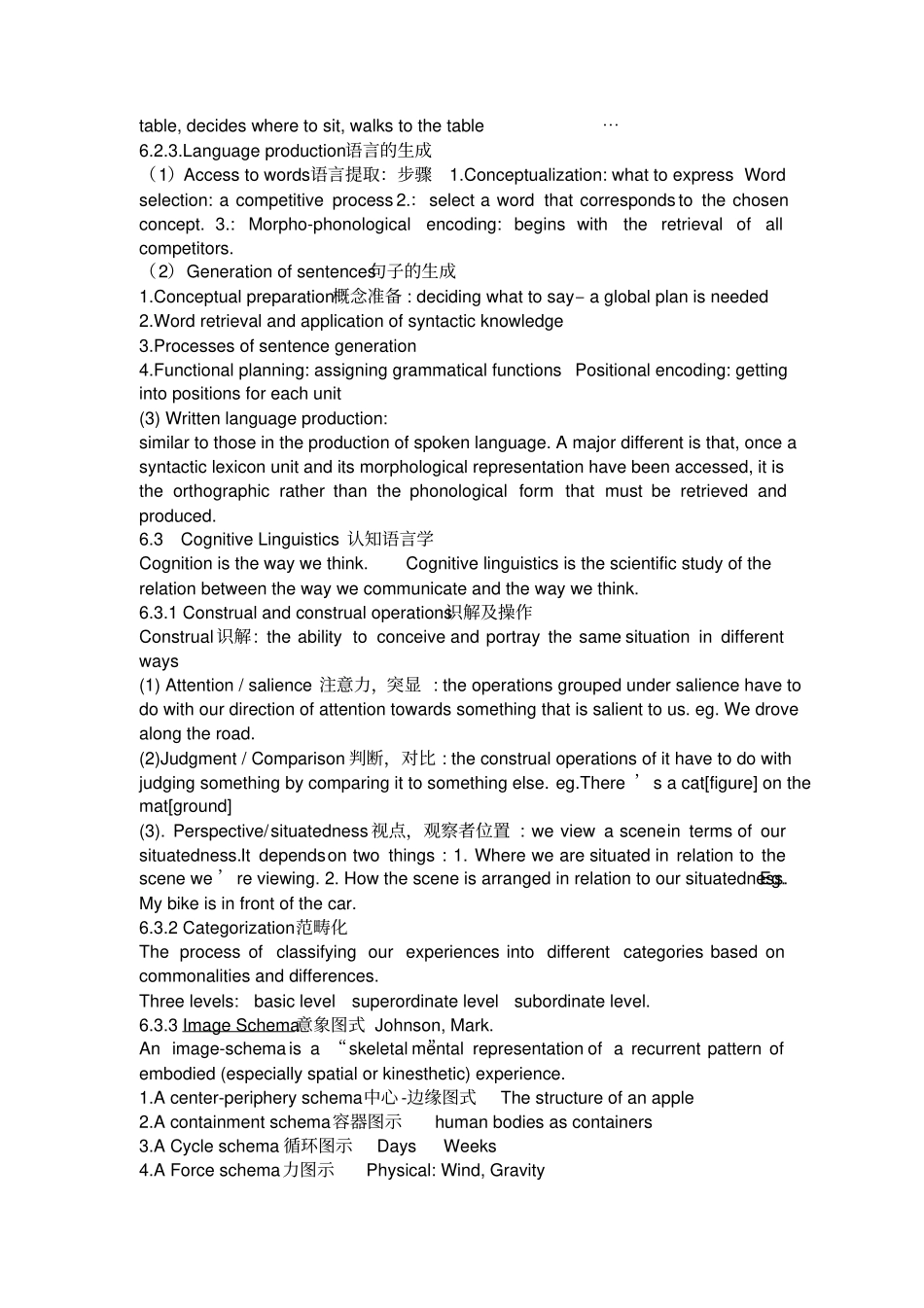Chapter 6 Language and Cognition1. 语言与认知6.1.What is Cognition 认知 ? a.Mental processes, information processing b.Mental process or faculty of knowing,including awareness,perception, reasoning, and judgment. 2.The formal approach:形 式 法structural patterns, including the study of morphological, syntactic, and lexical structure. The psychological approach 心理法 : language from the view of general systems ranging from perception, memory, attention, and reasoning. The conceptual approach:认知法: how language structures (processes & patterns) conceptual content. 6.2.Psycholinguistics心理语言学The study of the relationships between linguistic behavior and mental activity. 6.2.1 Language acquirement 语言习得① Holophrastic stage独词句阶段Two word stage双词句阶段Stage of three-word utterances三词句阶段④ Fluent grammatical conversation stage 6.2.2 Language comprehension理解Mental lexicon(心智词库): information about the properties of words, retrievable when understanding language For example, we may use morphological rules to decompose a complex word like rewritable the first few times we encounter it and after several exposures we may store and access it as a unit or word. It means that frequency of exposure determines our ability to recall stored instances Connectionism(连结主义) : readers use the same system of links between spelling units and sound units to generate the pronunciations of written words like tove and to access the pronunciations of familiar words like stove, or words that are exceptions to these patterns, like love. Similarity and frequency play important roles in processing and comprehending language, with the novel items being processed based on their similarity to the known ones Word recognition 单词识别: reco...


